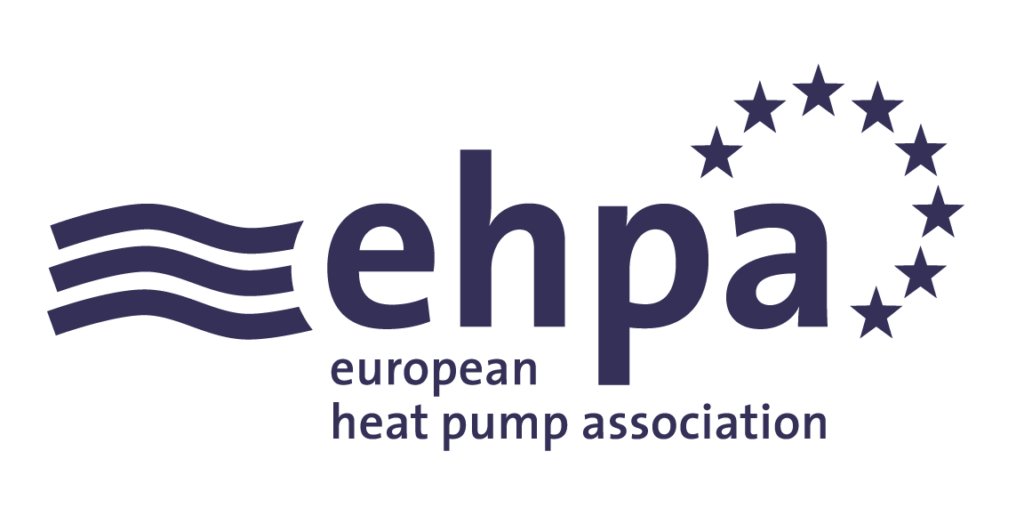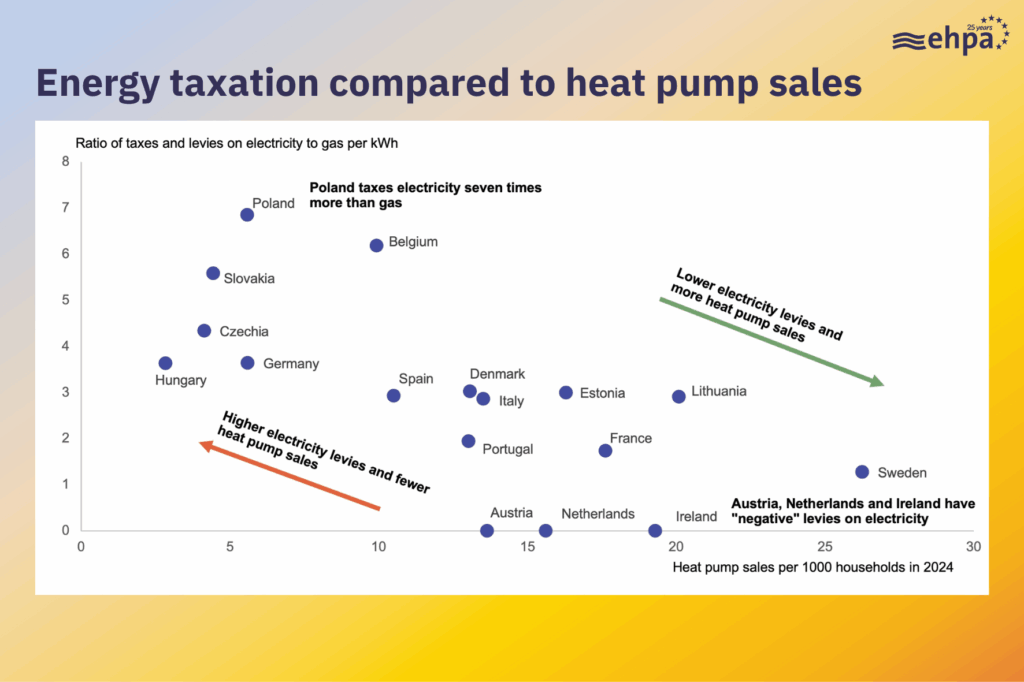Governments are undermining heat pumps’ critical role in boosting Europe’s energy security by taxing electricity far more heavily than gas, analysis from the European Heat Pump Association (EHPA) shows.
A heat pump is most competitive when the electricity price is twice the price of gas or less. While governments cannot control the market price of energy, they determine which taxes and levies are added to the bill.
Eight of the 17 European countries examined by EHPA tax electricity at least three times more than gas, and all of them were among the smallest markets for heat pump sales in 2024 relative to their population (see graph).
At the most extreme, Poland taxes electricity seven times more than gas, and Belgium over six times more.
Sweden and Ireland have the opposite approach. Sweden has historically supported electricity and taxed fossil fuels and always had high heat pump use, and Ireland has adjusted its energy tax in recent years, and its heat pump deployment is growing.
Paul Kenny, director general of the European Heat Pump Association said:
“Europe’s leaders need to boost energy security by shifting from fossil fuel-based heating to heat pumps. A key tool at their disposal is adapting the way they tax electricity bills. Any future European energy security plan must push governments to rebalance energy taxation, to ensure it enhances energy security rather than undermines it.”
Europe’s high dependence on imported fossil fuels is its weak flank on energy security. The European Commission has identified heat pumps as a key technology for both reducing Russian gas imports and in bolstering European industrial competitiveness. It has calculated that heat pump take-up and home efficiency could save €60 billion in avoided fossil fuel imports by 2030. EHPA has calculated that heat pumps already avoided 24 billion cubic metres of gas (bcm) in 2024.
Taxation coupled with other policy and regulatory support is essential to support heat pump deployment and therefore energy security. Taxation alone will not decrease Europe’s fossil fuel imports, but without a supportive energy taxation policy and reduction in fossil fuel subsidies, citizens and businesses will continue to favour fossil fuels over electricity.
The contribution of heat pumps to European energy security will be discussed this week, 23-24 September at the 2025 Heat Pump Forum, taking place at MIX Brussels, organised by the European Heat Pump Association. Accredited press members can attend for free.
Notes to the editor
- The analysis does not take into account fossil fuel subsidies, worth €88 billion per year in Europe in 2023.
- EHPA argues that the EU VAT Directive should be amended to allow Member States to reduce VAT on the installation of heat pumps to zero, in line with solar PV. Some Member States have reduced it as far as possible (to 5%), but are not able to go below that without a change to the Directive. As EU Member States control their own taxation, they could reduce electricity taxation to a minimum, reduce the VAT on heat pump installation, apply different VAT rates on electricity versus fossil fuels or other measures to make the use of clean electricity for home and industrial heating more compelling.
- Currently, Europe uses 40% of its energy for heating. When replacing a gas boiler, electrically driven heat pumps cut that building or industry’s energy use by a factor of three to four. As we switch from imported fossil fuel driven boilers to indigenous and increasingly clean electricity-driven heat pumps, the amount of fossil fuels we import will decrease dramatically.
- The International Energy Agency estimates that gas demand in buildings is expected to decline by 65 billion cubic metres in advanced economies from 2021 to 2030 thanks to a swift acceleration of efficiency improvements and widespread adoption of heat pumps.
- In this press release, taxes and levies include VAT, renewable levies, capacity payments, environmental, nuclear and all other taxes and levies as defined by Eurostat.



